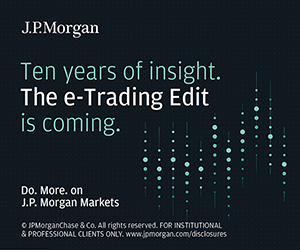FCA Backs No Additional Hold Time for FX Last Look
Posted by Colin Lambert. Last updated: November 21, 2021
The UK regulator, the Financial Conduct Authority (FCA) has formally recognised the updated FX Global Code and Global Precious Metals Code, and explicitly stated that additional hold times, or latency buffering, are “not consistent with the codes”.
The FCA says that individuals subject to the Senior Managers and Certification Regime (SM&CR) need to meet requirements for market conduct, for both regulated and unregulated activities. Behaviour that is in line with an FCA recognised code will tend to indicate a person subject to the SM&CR is meeting their obligation to observe ‘proper standards of market conduct’ in relation to unregulated markets (FSMA, UK legislation and FCA rules and guidance outline proper standards of conduct in regulated markets). “The FCA expects firms and individuals to consider both the spirit and letter of code provisions to make sure they fully meet ‘proper standards of market conduct’,” it states.
The regulator’s statement also notes that after confirming with the Global Foreign Exchange Committee and London Bullion Markets Association, “Regardless of the terminology used, last look practices that incorporate a delay that is additional to what is required to complete price and validity checks (some market participants refer to such deliberate delays as ‘additional hold time’) are not consistent with the Codes. For example, market participants should not prolong the duration of the last look window for the purpose of seeing if future prices move in their favour in relation to the client’s trade request.”
The FCA also weighs in on pre-hedging, another key aspect of the recent Three-Year Review of the FX Global Code, stating, “Pre-hedging practices where market participants do not communicate their practices to clients in a manner that allows the client to understand the potential impact on the execution of their order are not consistent with the Codes. This includes practices where market participants do not have appropriate controls to monitor potential conflicts of interest, and do not have controls in place to limit access to confidential information relating to anticipated orders.”
More broadly, the FCA says that those who are signatories to the FX and PM Codes, will need to make clear and transparent disclosures to market users to explain how their orders will be handled. “For example, a market participant applying last look price checks would need to explain if these are symmetric or asymmetric.”
For the FX Code, anonymous trading platforms would need to disclose whether their users are signatories to the Code, it adds, saying these could be important indicators or even determinants of execution quality, and so of direct relevance to those seeking best execution outcomes.
The announcement has been welcomed by the Bank of England, in a statement Andrew Hauser, executive director for markets at the Bank says, “I welcome the FCA’s decision to recognise the revised FX Global Code. Since the FCA’s recognition of the Code in 2019, which embedded the Code in the Senior Managers and Certification Regime, we have seen a step change in engagement by the UK asset management community in particular. There are now over 1,100 statements of commitment made to the FX Global Code. The FCA’s recognition of the revised Code continues to highlight the benefits of Code sign-up and promotes the integrity and effective functioning of the wholesale FX market. ”
Guy Debelle, chair of the GFXC and deputy governor of the Reserve Bank of Australia, adds, “I welcome the FCA’s recognition of the revised FX Global Code. In particular, the FCA’s focus on aspects of our three-year review, such as last look, pre-hedging and the role of clear and transparent disclosures, highlights the importance of the GFXC’s work in ensuring that the Code remains relevant to the evolving FX market.”

